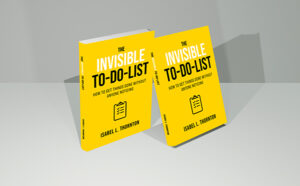It’s easy to think of health and money as separate areas of life. But in reality, your physical, mental, and financial well-being are deeply intertwined. One directly influences the other—and neglecting either can disrupt your ability to live a balanced, fulfilling life.
Understanding this relationship can help you make smarter decisions that support both your body and your bank account.
How Health Impacts Your Financial Life
1. Medical Expenses
Unexpected health issues are one of the leading causes of financial hardship. Without proper coverage or emergency savings, a single illness or accident can lead to:
- High medical bills
- Lost wages from time off work
- Long-term debt
2. Chronic Stress
Financial strain increases cortisol levels, leading to chronic stress that can weaken the immune system, disrupt sleep, and contribute to serious conditions like heart disease or depression.
3. Productivity and Earning Potential
Poor health reduces energy, focus, and work capacity—limiting opportunities for career growth or side income.
How Finances Impact Your Health
1. Access to Healthcare
Those with stronger financial foundations are more likely to afford:
- Preventative care
- Regular checkups
- High-quality insurance
- Mental health services
2. Nutrition and Lifestyle
A healthy diet, gym memberships, wellness resources, and time for rest are more accessible when you’re not living paycheck to paycheck.
3. Mental Wellness
Financial stability brings peace of mind. It reduces anxiety, boosts self-esteem, and supports healthier relationships.
Habits That Strengthen Both Health and Wealth
✅ Create a Preventative Health Plan
Schedule regular checkups, get enough sleep, manage stress, and stay physically active. Prevention is cheaper—and more effective—than treatment.
✅ Build a Health Emergency Fund
Even if you have insurance, out-of-pocket costs add up. A health-specific savings fund can prevent debt during medical surprises.
✅ Budget for Wellness
Make room in your monthly budget for things that support your physical and mental well-being—like therapy, a gym membership, or healthier food.
✅ Use Health-Related Tax Benefits
Explore HSAs (Health Savings Accounts) or FSAs (Flexible Spending Accounts) to save on medical costs with pre-tax dollars.
✅ Practice Financial Self-Care
Just like you schedule workouts, set regular “money dates” to check in on your budget, savings goals, and overall financial health.
Aligning Your Goals for a Better Life
When you take care of your health, you create more capacity to work, grow, and enjoy life. When you manage your finances, you create space for self-care, rest, and proactive health choices.
By seeing health and money as partners—not competitors—you can build a life that supports your well-being in every sense.
To learn how to create a life of holistic success, check out my book Building Wealth for a Better Life. It’s not just a financial guide—it’s a blueprint for wellness, balance, and long-term freedom.




